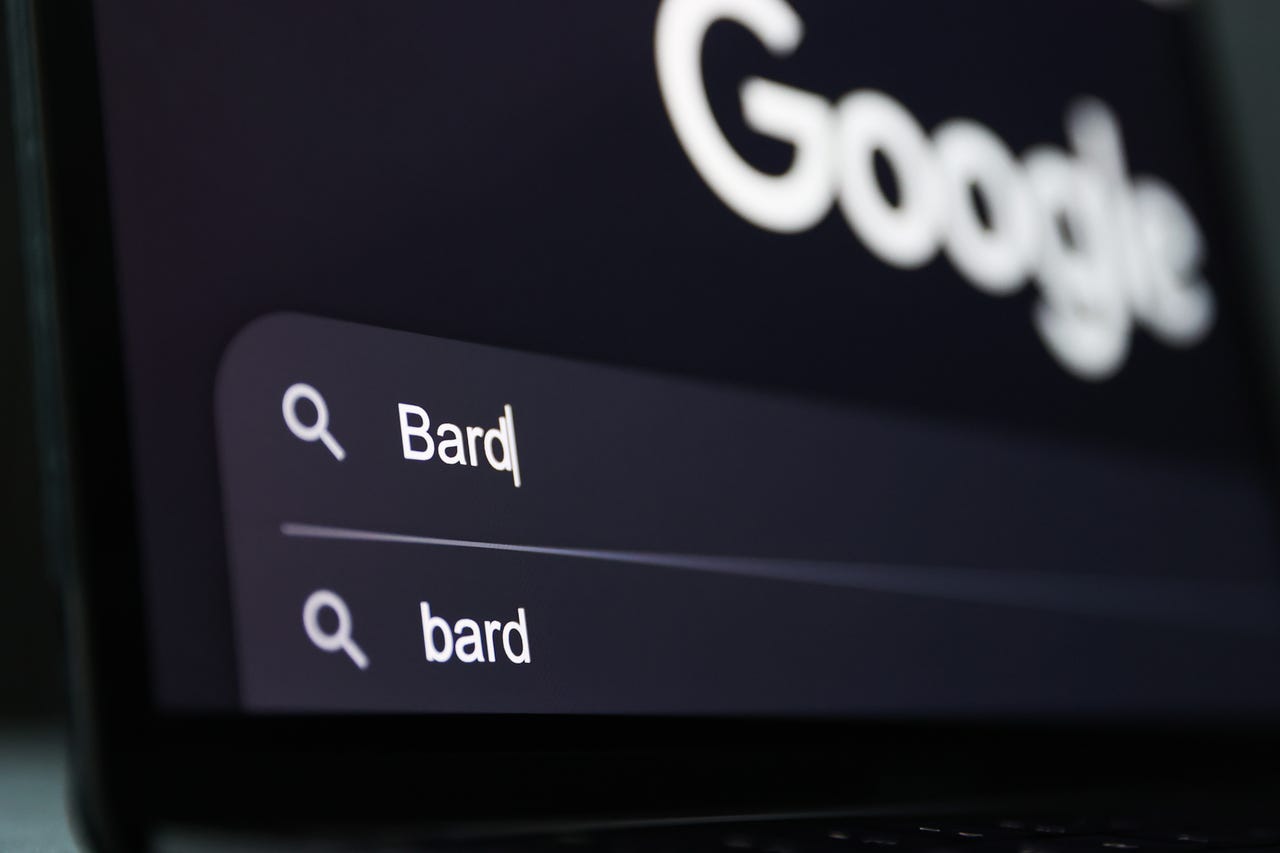































 NurPhoto/Getty Images
NurPhoto/Getty Images Google has established its rightful place at the top of the search engine hierarchy as the most used search engine in the world. Consequently, the expectations for Google's AI chatbot were high. The results, sadly, fell flat.
Google Bard was released four months after OpenAI's extremely capable and powerful ChatGPT was made available to the public. During that time, Bing Chat also entered the scene and held its own against ChatGPT.
Also: ChatGPT vs. Bing Chat: Which AI chatbot should you use?
Therefore, when Google Bard was unveiled, it had the challenge of either surpassing or meeting both ChatGPT's and Bing Chat's capabilities -- which it didn't.
Instead, Google Bard offered got some jobs done but didn't compare to those two frontrunners -- Google's CEO Sundar Pichai knows that.
Also: How to use ChatGPT to summarize a book, article, or research paper
"I feel like we took a souped-up Civic and kind of put it in a race with more powerful cars," said Pichai in an interview with The New York Times.
Although it may seem like a funny analogy, it accurately echoes the feedback that users have been sharing about their experiences with the chatbot.
However, things could be about to change. In addition to acknowledging the lack of capabilities, Pichai reveals that Bard will be getting a major facelift.
Also: I tested Google Bard. It was surprising in a bad way
"We clearly have more capable models," says Pichai. "Pretty soon, maybe as this [NYT article] goes live, we will be upgrading Bard to some of our more capable PaLM models, which will bring more capabilities, be it in reasoning, coding, it can answer math questions better."
The initial version of Bard utilized a lightweight model version of LaMDA, Google's Language Model for Dialogue Applications. This was a departure from the LLMs that Bing Chat and ChatGPT use, an LLM in the GPT series created by Open AI.
Bing, which has been a major underdog in the search engine game, is celebrating Bing Chat's success and its biggest competitor's lack of it.
Also: ChatGPT just debugged my code. For real.
Michael Schechter, Vice President, Growth and Distribution at Microsoft, tweeted, "Oceans rise, empires fall," in response to Pichai's interview with The New York Times.
The celebration may be premature, as Google still has a chance at redemption with its switch to PaLM models, which Pichai claims to be more capable.
 Tags quentes :
Inteligência artificial
Inovação
Tags quentes :
Inteligência artificial
Inovação